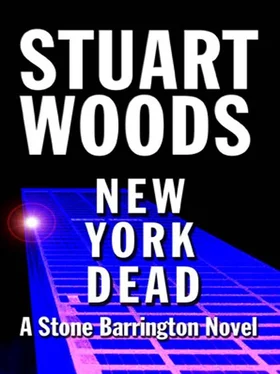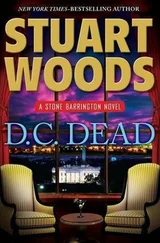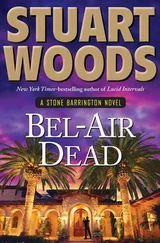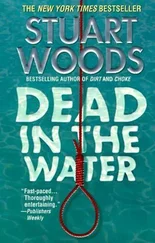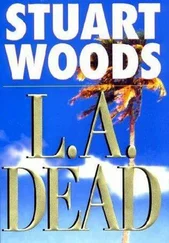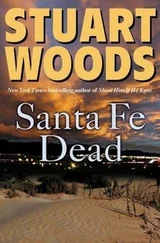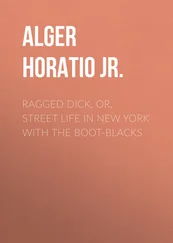Stone stood with his client.
“The clerk will read the verdict.”
The clerk looked at the piece of paper. “We, the jury, unanimously find the defendant guilty as charged.”
Stone’s client sighed audibly.
Well you might sigh, Stone thought. I tried to get you to plead to the lesser charge, you dumb schmuck. But you thought you could beat it.
“The jury is released with the thanks of the court for a job well done,” Judge O’Neal said. “Sentencing is set for the twenty-fifth of this month; bail is continued pending.” She struck the bench with her gavel and rose. The courtroom rose with her.
Stone turned to his client. “I’m sorry we couldn’t get a better verdict.”
“You warned me,” the man said. “Can I go home now?”
“Yes. We have to decide whether to appeal; I really think you should consider the expense.”
The man sighed again. “Why bother? I’ll do the time.”
“You’re free until sentencing, but you’d better be prepared not to go home after that. Bring a toothbrush.”
They shook hands, and the man walked sadly away. Stone began gathering his notes.
“Mr. Barrington?”
Stone looked up. Judge O’Neal was standing to one side of the bench, behind the railing.
“In my office, please,” she said primly.
Stone groaned. He had pressed his luck often in cross-examining the prosecution’s witnesses, and she had repeatedly called him down for it. Now, the lecture. Hell, he thought, I’m lucky not to have been held in contempt. He trudged into her chambers, ready to take his medicine.
She had perched on an arm of the big leather sofa. She undid her robes, and they fell aside to reveal a bright red dress that went particularly well with her blonde hair. She crossed her legs.
They look awfully good, he thought. Something stirred in him for the first time in a long while.
“I read about the Nijinsky case, of course,” she said. “I believe you discovered Ms. Nijinsky in a thoroughly dead condition.”
“That’s right, Judge. She was what a friend of mine calls ‘New York Dead.’”
“In that case, I will remind you of our wager of some time past,” O’Neal said, uncrossing her legs and recrossing them in the other direction.
He had forgotten.
“You, sir, owe me a dinner,” she said.
Stone smiled. “Yes, Your Honor,” he replied.
The Public Affairs Department of the New York City Police Department was not helpful in the research for this book. Individual officers were, however, and I would particularly like to thank Detective Jerry Giorgio of the 34th Squad Homicide Team for some enlightening conversations.
I thank Elaine Kaufman for keeping the home fires burning on Second Avenue and for running a place where a writer can get a decent table.
I am grateful to my editor, Ed Breslin, my London publisher, Eddie Bell, and all their colleagues at HarperCollins for their appreciation of this book and their hard work on its behalf.
Once again, I want to extend my gratitude to my agent, Morton Janklow, his associate, Anne Sibbald, and all the people at Janklow amp; Nesbit for their continuing care and concern for my career.
“We Are Very Different People”:
Stuart Woods on Stone Barrington
An Interview by Claire E. White
Stuart Woods was born in the small southern town of Manchester, Georgia on January 9, 1938. His mother was a church organist and his father an ex-convict who left when Stuart was two years old, when it was suggested to him that, because of his apparent participation in the burglary of a Royal Crown Cola bottling plant, he might be more comfortable in another state. He chose California, and Stuart only met him twice thereafter before his death in 1959, when Stuart was a senior in college.
After college, Stuart spent a year in Atlanta, two months of which were spent in basic training for what he calls “the draft-dodger program” of the Air National Guard. He worked at a men’s’ clothing store and at Rich’s department store while he got his military obligation out of the way. Then, in the autumn of 1960, he moved to New York in search of a writing job. The magazines and newspapers weren’t hiring, so he got a job in a training program at an advertising agency, earning seventy dollars a week. “It is a measure of my value to the company,” he says, “that my secretary was earning eighty dollars a week.”
At the end of the sixties, after spending several weeks in London, he moved to that city and worked there for three years in various advertising agencies. At the end of that time he decided that the time had come for him to write the novel he had been thinking about since the age of ten. But after getting about a hundred pages into the book, he discovered sailing, and “…everything went to hell. All I did was sail.”
After a couple of years of this his grandfather died, leaving him, “…just enough money to get into debt for a boat,” and he decided to compete in the 1976 Observer Single-handed Transatlantic Race (OSTAR). Since his previous sailing experience consisted of, “…racing a ten-foot plywood dingy on Sunday afternoons against small children, losing regularly,” he spent eighteen months learning more about sailing and, especially, ocean navigation while the boat was built at a yard in Cork.
He moved to a nearby gamekeeper’s cottage on a big estate to be near the building boat. In the summer of 1975 he sailed out to the Azores in a two-handed race, in company with Commander Bill King, a famous World War II submarine commander and yachtsman, who had done a round-the-world, single-handed voyage. Commander King then flew back to Ireland, and Stuart sailed back, single-handed, as his qualifying cruise for the OSTAR the following year.
The next couple of years were spent in Georgia, dividing his time between Manchester and Atlanta, while selling his grandfather’s business, a small-town department store, and writing two non-fiction books. Blue Water, Green Skipper , was an account of his Irish experience and the OSTAR, and A Romantic’s Guide to the Country Inns of Britain and Ireland , “was a travel book, done on a whim.
He also did some more sailing. In August of 1979 he competed in the now notorious Fastnet Race of 1979, which was struck by a huge storm. Fifteen competitors and four observers lost their lives, but Stuart and his host crew finished in good order, with little damage. That October and November, he spent skippering his friend’s yacht back across the Atlantic, calling at the Azores, Madiera and the Canary Islands, finishing at Antigua, in the Caribbean.
In the meantime, the British publisher of Blue Water, Green Skipper had sold the American rights to W.W. Norton, a New York publishing house, and they had also contracted to publish the novel, on the basis of two hundred pages and an outline, for an advance of $7500. “I was out of excuses to not finish it, and I had taken their money, so I finally had to get to work.” He finished the novel and it was published in 1981, eight years after he had begun it. The novel was called Chiefs .
Though only 20,000 copies were printed in hard-back, the book achieved a hefty paperback sale and was made into a six-hour critically acclaimed television drama for CBS-TV, starring Charlton Heston, Danny Glover, John Goodman, Billy D. Williams, and Stephen Collins.
Chiefs also established Stuart as a novelist in the eyes of the New York publishing community and was the beginning of a successful career. He has since written fifteen more novels, the most recent of which are Dead in the Water , which just came out in paperback, and Swimming to Catalina , just out in hardcover from HarperCollins. Both books feature Stone Barrington, the handsome, sophisticated attorney/investigator, and are New York Times bestsellers. Chiefs won the coveted Edgar award from the Mystery Writers of America, and Stuart was nominated again for Palindrome . Recently he has been awarded France ’s Prix de Literature Policière, for Imperfect Strangers .
Читать дальше
